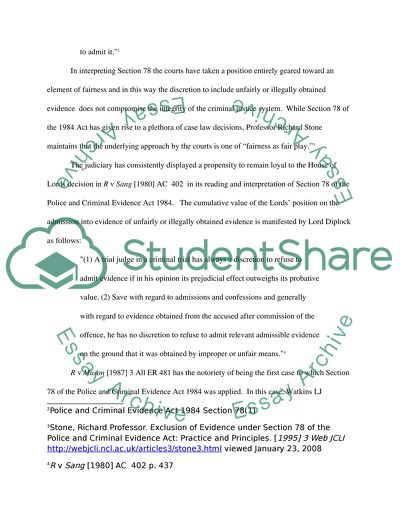Cite this document
(Illegally Obtained Evidence in Justice System Coursework, n.d.)
Illegally Obtained Evidence in Justice System Coursework. https://studentshare.org/law/1544164-unfairly-or-illegally-obtained-evidence-should-always-be-excluded-to-uphold-the-integrity-of-the-criminal-justice-system-discuss
Illegally Obtained Evidence in Justice System Coursework. https://studentshare.org/law/1544164-unfairly-or-illegally-obtained-evidence-should-always-be-excluded-to-uphold-the-integrity-of-the-criminal-justice-system-discuss
(Illegally Obtained Evidence in Justice System Coursework)
Illegally Obtained Evidence in Justice System Coursework. https://studentshare.org/law/1544164-unfairly-or-illegally-obtained-evidence-should-always-be-excluded-to-uphold-the-integrity-of-the-criminal-justice-system-discuss.
Illegally Obtained Evidence in Justice System Coursework. https://studentshare.org/law/1544164-unfairly-or-illegally-obtained-evidence-should-always-be-excluded-to-uphold-the-integrity-of-the-criminal-justice-system-discuss.
“Illegally Obtained Evidence in Justice System Coursework”. https://studentshare.org/law/1544164-unfairly-or-illegally-obtained-evidence-should-always-be-excluded-to-uphold-the-integrity-of-the-criminal-justice-system-discuss.


